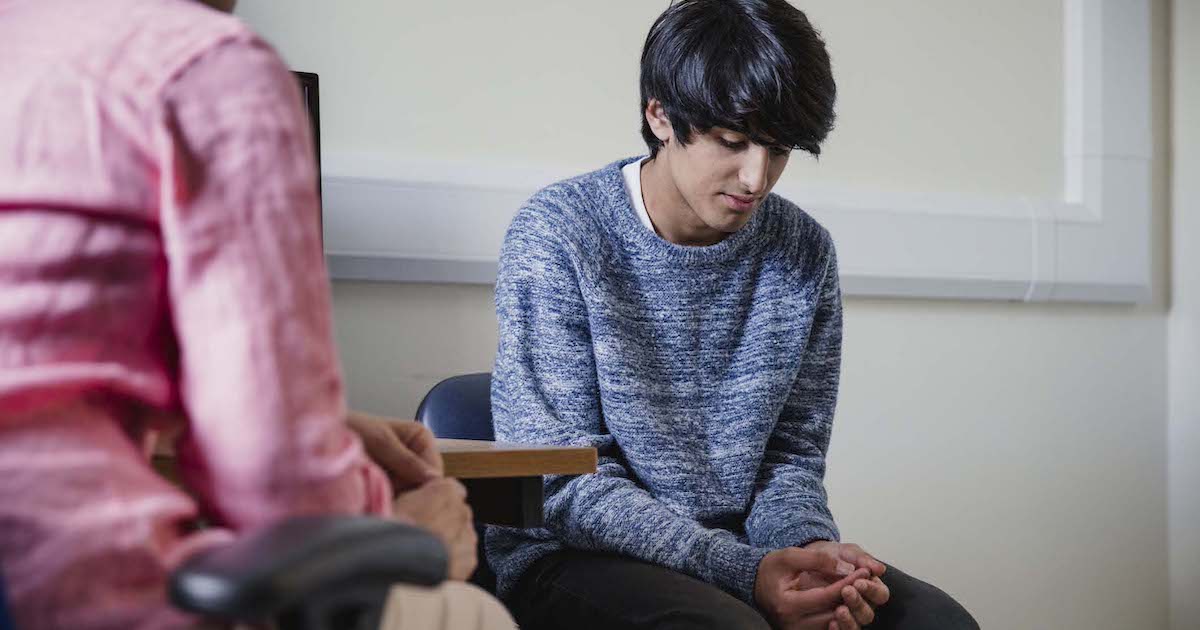Uncertainty in life is a major factor. Uncertainty is a part of life that we all experience at different times. Some people are able to deal with uncertainty without much difficulty, but others find it stressful and anxiety-provoking. It is possible to develop and improve the ability to cope with anxiety when faced with uncertainty. This will help us live more balanced and fulfilling lives. This article will examine the relationship between anxiety and uncertainty as well as strategies to cope effectively.
Understanding Uncertainty
Uncertainty comes in many different forms and can be a result of various factors. Here are some examples:
Career Uncertainty – Worries about career advancement, job security or loss of job.
Health Uncertainty : Concerns over one’s health or that of a loved one, particularly when they are facing an undiagnosed condition or chronic illness.
Financial Uncertainty is anxiety about financial stability, debt, economic downturns, and investments.
Relationship Uncertainty – Questions about the stability or newness of a relationship.
World Events: You may be concerned about political instability, environmental crisis, and other issues.
Anxiety related to major life transitions such as starting a new family, moving or retiring.
Uncertainty and anxiety are connected
Uncertainty is often a trigger for anxiety. We tend to get anxious when the outcome of a situation is unclear or we have no control over it. Because our brains are wired to survive, they prefer predictability and avoid perceived threats. This threat response is triggered by uncertainty, which can cause anxiety symptoms such as restlessness and fear.
Mental Health and Chronic Uncertainty
It is normal to deal with uncertainty from time to time. However, when this becomes a chronic problem, it can affect your mental health. Long-term exposure to uncertainty may lead to:
Generalized Anxiety Disorder: People can develop GAD. This condition is characterized by excessive and persistent worrying about different aspects of their lives, even when no immediate danger exists.
Anxiety can cause panic attacks. These are intense episodes of fear, accompanied by physical symptoms such as rapid breathing, dizziness, and a rapid heartbeat.
Insomnia – Uncertainty may cause sleep disturbances and make it difficult to relax or fall asleep.
Depression: Feelings of sadness and hopelessness can result from prolonged uncertainty.
Dealing with anxiety in the face of uncertainty
There are ways to deal with the anxiety that comes from uncertainty. Here are a few key strategies:
Mindfulness Meditation is a technique that helps people stay in the present moment. You can reduce anxiety by focusing on what is happening right now rather than worrying about tomorrow. You can learn mindfulness meditation through apps or courses. It is an effective tool to manage uncertainty.
You can control what you can: Although some things in your life are out of your hands, there are still aspects that you are able to manage. You can reduce your anxiety by identifying areas that you can control.
Limit your information consumption: While it is important to stay informed, excessive exposure of negative or uncertain news may increase anxiety. Set limits on media consumption, and allow yourself to take breaks.
Catastrophic thinking is common among anxious people. Examine the evidence and consider more realistic outcomes to challenge these catastrophic thoughts.
Building a Support Network: Talking about your worries and anxieties with family members, friends, or a professional therapist is a great way to gain support. They can provide support, advice, and a different perspective that will help reduce anxiety.
Practice Self-Care. It is important to take care of both your physical and mental well-being. Make sure you get enough rest, maintain a healthy eating plan, participate in regular physical activities, and do things that you enjoy.
Accept Uncertainty – Accepting uncertainty is better than resisting it or fearing it. Accepting uncertainty in life as a normal part of living can reduce anxiety. Not knowing what lies ahead can sometimes lead to unexpected positive outcomes.
Consider Professional Help. If anxiety over uncertainty is affecting your life and causing you to feel overwhelmed, it may be time to seek professional help. Counselors and therapists can offer strategies and support tailored for your situation.
The conclusion of the article is:
Over time, you can learn to cope with anxiety when faced with uncertainty. Uncertainty is a part of everyday life but it does not have to dictate your emotions and thoughts. You can reduce anxiety by practicing mindfulness, taking charge where you can, getting support and accepting the unpredictable nature of life. You are not alone on this journey. Professional help is available to those who struggle with anxiety and chronic uncertainty.




